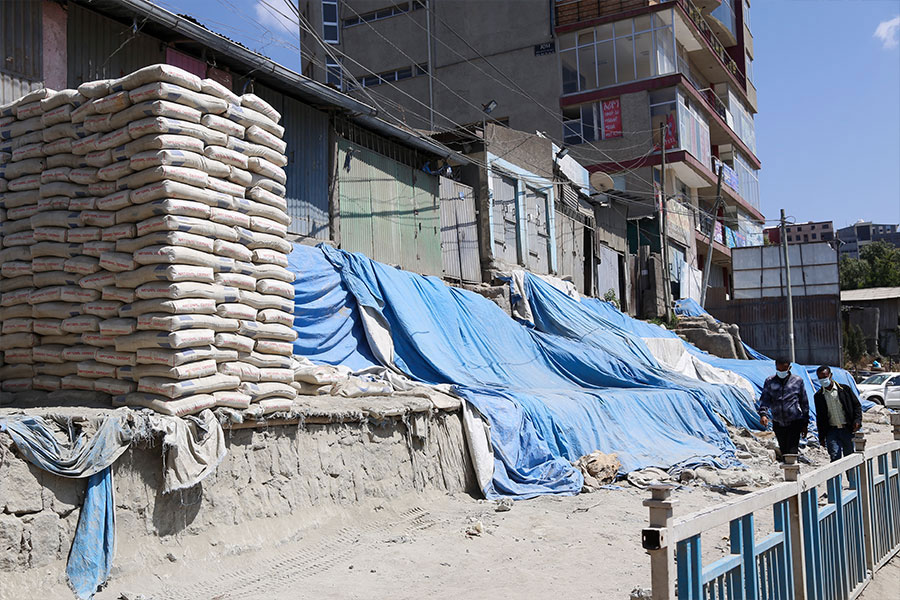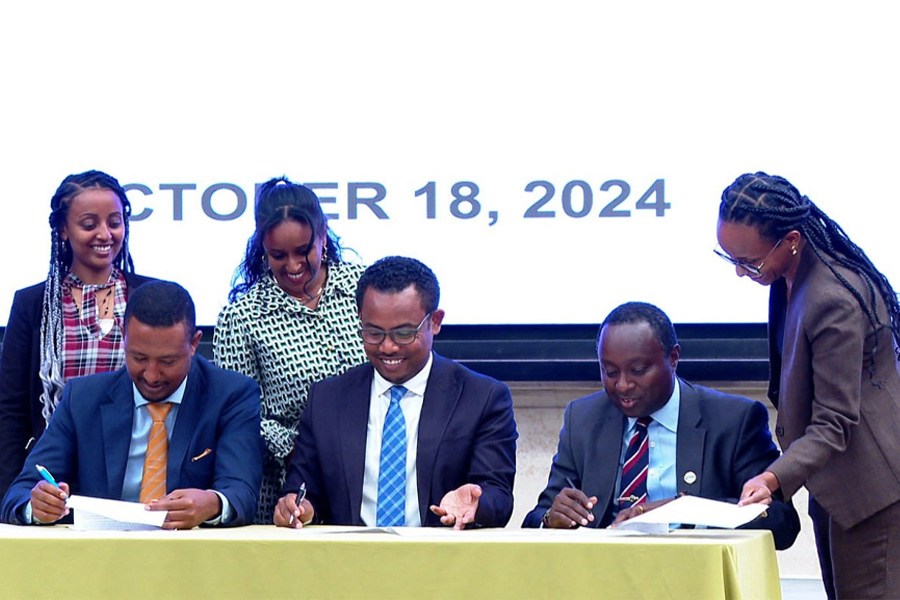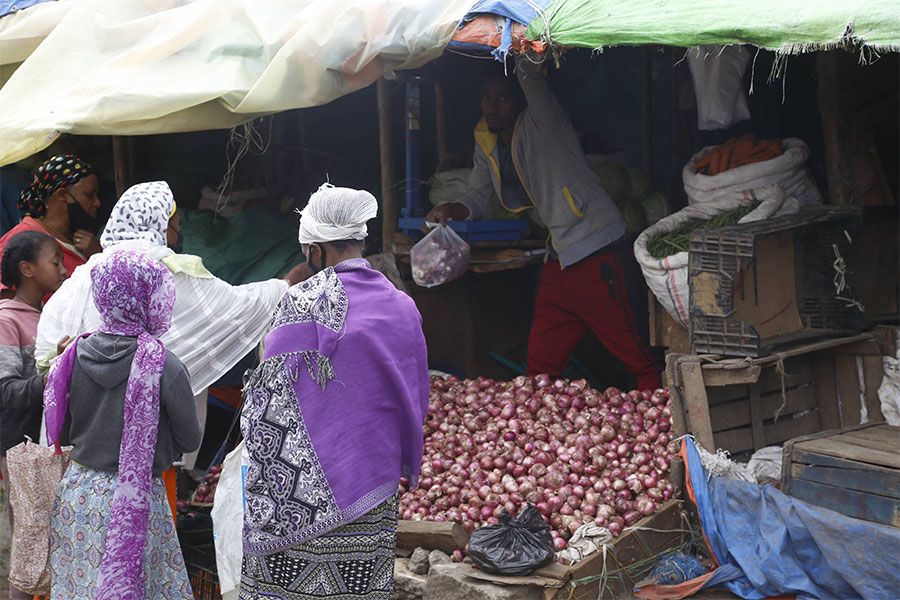
My Opinion | Jan 07,2024
Jan 19 , 2024
The recent memorandum of understanding, signed earlier this month between the leaders of Ethiopia and Somaliland, offering the first a maritime access, marks a turning point in the quest to expand Ethiopia's economic horizons. Landlocked and aiming for economic growth, its move to secure a maritime foothold is more than a logistical necessity. It is a strategic manoeuvre to boost its global stature and realise economic potential.
Ethiopia's growing population and economic trajectory, poised for considerable growth, demands a far-sighted maritime strategy. This involves cultivating long-term and mutually beneficial relationships with coastal neighbours through a dynamic and multifaceted diplomatic approach mirroring its economic ambitions. The quest for a maritime outlet should be viewed as an extension beyond the immediate goal of securing access to port facilities. Its maritime ambitions are a reflection of the broader lesson in international relations – the importance of diplomacy and maintaining a country's image on the global stage.
For Ethiopia, this means navigating a path that secures its economic interests while enhancing its standing as a responsible and astute member of the international community. The real challenge lies in steering these diplomatic waters with equal prowess. The vision potentially encompasses broader regional integration, which requires a tactful balance of national interests with regional cooperation. This demands a high level of diplomatic skill, particularly in managing regional expectations and ensuring transparent communications.
The agreement, primarily a leasing arrangement rather than ownership, demonstrates Ethiopia's nuanced approach to the grand chessboard of geopolitics. However, the portrayal of this pact in various media outlets often diverges from its actual stipulations. The ambiguity is not the work of editorial oversights but could potentially be a diplomatic faux pas in a region where every action and statement is under microscopic scrutiny.
Ethiopia's leaders might have been keen to clarify the nature of the deal, emphasising the aspect of leasing over ownership. The gap between media representation and the agreement's actual terms could undermine regional trust, a commodity as crucial as maritime access itself. The distinction carries significant diplomatic implications, particularly in a region sensitive to nuances of territorial sovereignty.
Its leaders' ability to delicately balance the country's aspirations with regional and international expectations will be consequential. Their diplomatic understanding will be tested in how Ethiopia navigates the potential pitfalls associated with media misrepresentations and distorted public perception. Ensuring its strategic moves are not misconstrued requires a sophisticated communications strategy confirming international diplomatic norms and practices. This should not be about controlling the narratives but crafting them in ways that resonate with domestic and international audiences, reflecting Ethiopia's commitment to collective and respectful international relations.
By forging alliances and partnerships based on mutual respect, Ethiopia can set a precedent for other landlocked countries on the continent and beyond. However, this strategy requires a keen understanding of the delicate balance between national interests and regional solidarity. Its diplomatic strategy must also weigh the long-term need for stable and peaceful coexistence with neighbours and the international community against short-term gains in access and infrastructure.
Ethiopia’s quest for sea access is a test of its leaders' ability to blend economic ambition with diplomatic finesse, a balance that will define the country's course in the years to come. Their approach to these challenges will shape its maritime future and build its reputation on the global stage.
PUBLISHED ON
Jan 19,2024 [ VOL
24 , NO
1238]

My Opinion | Jan 07,2024

Commentaries | Jul 27,2024

Life Matters | May 31,2020

Fortune News | Jun 25,2022

Radar | Oct 19,2024

Fortune News | Dec 24,2022

Agenda | Sep 26,2021

Commentaries | Mar 11,2023

Radar | May 04,2024

Radar | Feb 04,2023

My Opinion | 131819 Views | Aug 14,2021

My Opinion | 128203 Views | Aug 21,2021

My Opinion | 126147 Views | Sep 10,2021

My Opinion | 123767 Views | Aug 07,2021

Dec 22 , 2024 . By TIZITA SHEWAFERAW
Charged with transforming colossal state-owned enterprises into modern and competitiv...

Aug 18 , 2024 . By AKSAH ITALO
Although predictable Yonas Zerihun's job in the ride-hailing service is not immune to...

Jul 28 , 2024 . By TIZITA SHEWAFERAW
Unhabitual, perhaps too many, Samuel Gebreyohannes, 38, used to occasionally enjoy a couple of beers at breakfast. However, he recently swit...

Jul 13 , 2024 . By AKSAH ITALO
Investors who rely on tractors, trucks, and field vehicles for commuting, transporting commodities, and f...

Jul 5 , 2025
Six years ago, Ethiopia was the darling of international liberal commentators. A year...

Jun 28 , 2025
Meseret Damtie, the assertive auditor general, has never been shy about naming names...

Jun 21 , 2025
A well-worn adage says, “Budget is not destiny, but it is direction.” Examining t...

Jun 14 , 2025
Yet again, the Horn of Africa is bracing for trouble. A region already frayed by wars...

Jul 6 , 2025 . By BEZAWIT HULUAGER
The federal legislature gave Prime Minister Abiy Ahmed (PhD) what he wanted: a 1.9 tr...

Jul 6 , 2025 . By YITBAREK GETACHEW
In a city rising skyward at breakneck speed, a reckoning has arrived. Authorities in...

Jul 6 , 2025 . By NAHOM AYELE
A landmark directive from the Ministry of Finance signals a paradigm shift in the cou...

Jul 6 , 2025 . By NAHOM AYELE
Awash Bank has announced plans to establish a dedicated investment banking subsidiary...